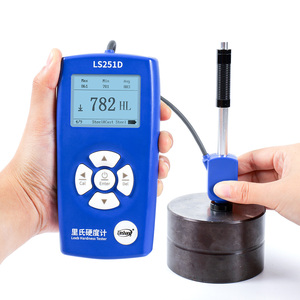Introduction to Lead Hardness Testers
The lead hardness tester is a critical tool for metalworking and manufacturing industries. This instrument is specifically designed to measure the hardness of lead and similar alloys. Understanding the hardness of materials can greatly impact the quality and performance of products in various applications, such as casting, machining, and metal fabrication. In this competitive market, utilizing a lead hardness tester is essential for maintaining product integrity and ensuring compliance with industry standards.
Types of Lead Hardness Testers
There are several types of lead hardness testers available, each serving distinct purposes:
- Leeb Rebound Hardness Testers: These portable devices utilize the rebound principle to measure hardness quickly and accurately.
- Rockwell Hardness Testers: Often used for metals, these testers provide precise readings, typically suitable for harder lead alloys.
- Brinell Hardness Testers: This method involves pressing a hard steel or carbide ball into the surface of the lead sample for effective hardness measurement.
- Vickers Hardness Testers: Known for their versatility, these testers are capable of measuring a wide range of materials, including softer lead components.
Applications of Lead Hardness Testers
The lead hardness tester serves various important roles across different industries:
- Foundries: Used in the production of lead components to ensure consistent hardness and performance.
- Metal Fabrication: Critical for assessing the hardness of lead used in machinery and equipment to enhance durability.
- Research and Development: Employed in laboratories to develop new lead alloys and understand their characteristics.
- Aerospace and Automotive Manufacturing: Essential for ensuring materials meet strict safety and performance criteria.
Advantages of Using a Lead Hardness Tester
Investing in a lead hardness tester comes with numerous advantages that can benefit businesses greatly:
- Accuracy: Provides reliable and repeatable hardness measurements, essential for quality control.
- Portability: Many testers are lightweight and portable, allowing for on-site testing and convenience.
- Cost-Effective: By ensuring optimal hardness levels, these tools can help avoid costly manufacturing errors and material waste.
- User-Friendly: Most testers come with intuitive interfaces, making them easy to operate even for users with limited experience.









































